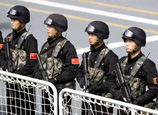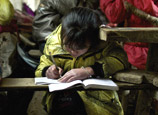
The bank said concerns remain over a slowdown in China's economic growth. Large investments already undertaken or approved this year are likely to continue to support growth next year, making the risk of a "hard landing" relatively small.
While a slow progressive decline in China's unusually high investment rate is the most likely outcome, if this position were to unwind abruptly there would be significant domestic and global consequences. However, if a major slowdown results from such an event, authorities are likely to use their fiscal space to maintain growth at acceptable levels.
The bank said China's growth is expected to slow slightly in 2014, in line with an expected gradual slowdown in potential growth. Continued high investment will add to potential growth, albeit at a declining rate, but China's labor force growth will further moderate, and turn negative later this decade, thus lowering labor's contribution to growth, and then reversing it.
Productivity increases are also expected to slow from their brisk pace of the past, as the "easy" gains in productivity, notably those based on moving labor from low productivity agriculture to manufacturing and services will no longer be available. China will have to rely more on innovation and better use of capital to achieve productivity increases.
















 Sex case leads to warnings about apps on smartphones
Sex case leads to warnings about apps on smartphones


![]()
